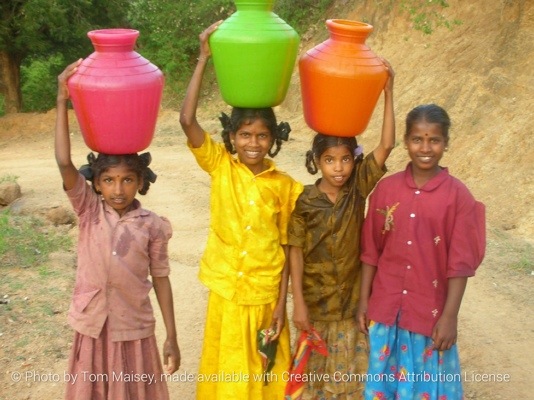When we discuss climate change, global warming or the human-caused destabilization of global climate patterns, we think of science, of energy, of the natural environment. We do not, often enough, think about justice. And when we do, it is in the context of the right of rapidly industrializing nations to emit as much CO2 as the nations that led the industrial revolution from the early 19th to the early 20th centuries.
Then, when we are more thoughtful, we come to Tuvalu, Vanuatu, the Maldives and Micronesia, where entire nations may need to be evacuated, as the rising seas spurred on by rampant CO2 emissions, rush in. (Incidentally, in the US, places like the Rockaways, in Queens, and lowlying areas of Staten Island, the New Jersey shore and the entire state of Delaware, are now making plans for possible evacuation to higher ground, as sea levels rise and become increasingly expensive to manage.)
But there are other ways in which climate destabilization plays havoc with the calculus of human justice. The question of justice begins, surely, with the unconstrained emission of climate-destabilizing gases, or greenhouse gases. But it leads us, eventually, to the downstream impacts, felt in places like rural Pakistan, where the melting of glaciers has contributed to a rash of catastrophic floods, whole regions have been set back decades by the devastation.
In places like South Sudan and Darfur, in western Sudan, or northern Nigeria, or northwestern China, devastating and expanding droughts, which amount to comprehensive desertification in some cases, have left communities without reliable access to drinking water. This often means women are forced by culture and by circumstance, to spend hours each day migrating in search of water.
The relationship between clean water access and the rights and security of women and girls is often much closer than people realize. At the 2011 World Bank Civil Society Forum, it was cited by the head of the World Bank as one of the main drags on progress in the civil liberties and economic opportunity enjoyed by women and girls around the world. The know-how to build wells and access to reliable water pumps can break that barrier and free women’s time and energy to motivate more self-determined activities, including education, leadership and political decision-making.
Where the climate is more comprehensively destabilized, we face the worst degradation of the human condition, and this poses real challenges, structurally, politically and socially, to the advancement of rights, as political and cultural conventions prioritize the practical application of power. We need to address this dysfunction, as we plan our response to the climate crisis, and consider policy options that will liberate individuals, families and communities, decentralizing political power and giving human beings a voice.
Stakeholders need to have a voice that is significant, and that is heard, and we need to examine the frameworks through which we motivate change, in order to make sure they do not block that necessary hearing, without which we will not achieve the best possible outcome for real people.
Today, Quipu.cc and the HotSpring Network’s NOW Labz project are holding the second day of CSW talks, on Google+. Today’s topic is climate policy, structural violence and climate justice.
Once the talk has finished, you can read the transcript here.
